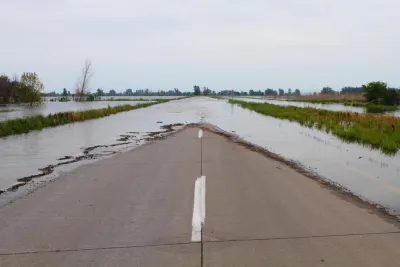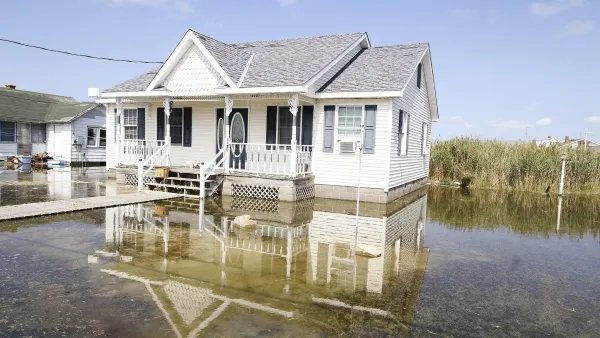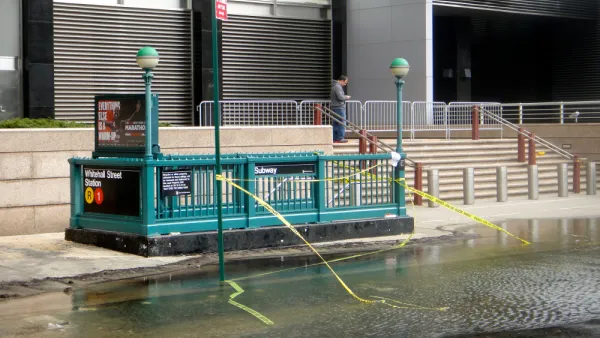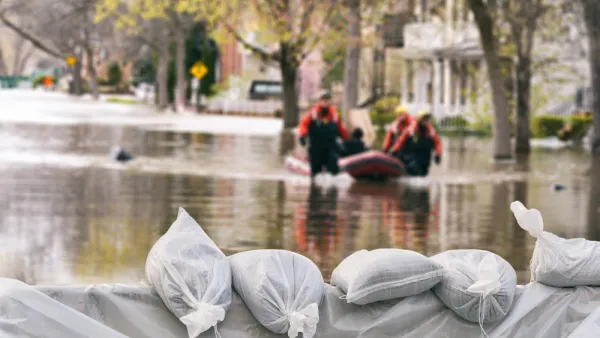While resources pour in for urban climate resilience projects, smaller communities often bear the brunt of extreme weather events.

According to Timothy Schuler, climate adaptation planning in the U.S. "has, with some notable exceptions, tended to focus on large metropolitan areas, particularly in the wake of Hurricane Katrina and Superstorm Sandy." But more recently, "Hurricane Ida served as a harsh reminder that the nation’s rural and smaller coastal communities often bear the brunt of the effects of climate change, suffering extensive flooding and other damage, yet lack the resources to rebuild or to implement measures that could prevent future disasters." These areas, Schuler writes, essentially become a "national climate sacrifice zone," overlooked and underresourced as climate change brings increasingly disastrous effects.
Yet "some 60 million people—1 in 5 Americans—live in rural areas," with the total rising to almost 90 million when including towns of 2,500 to 50,000 people. Weak political support, a low tax base, and "lack of access to the kinds of technical assistance design professionals provide to urban resilience projects" leave rural communities behind when it comes to resilience planning.
To mitigate the problem, organizations such as the Coastal Dynamics Design Lab (CDDL) provide cost-free "design and planning services to underserved areas, specifically around issues of disaster recovery and resilience." Projects like this "point to the value of university-affiliated design studios and research hubs, which at times offer smaller communities the only avenue through which they can access climate adaptation planning assistance." Additionally, "while smaller communities can stymie traditional design and planning models, they can serve as important testing grounds for how to work sensitively in other under-resourced places."
FULL STORY: In Ida’s wake, America’s rural communities need better protection—cities can’t hog climate adaptation

Analysis: Cybertruck Fatality Rate Far Exceeds That of Ford Pinto
The Tesla Cybertruck was recalled seven times last year.

National Parks Layoffs Will Cause Communities to Lose Billions
Thousands of essential park workers were laid off this week, just before the busy spring break season.

Retro-silient?: America’s First “Eco-burb,” The Woodlands Turns 50
A master-planned community north of Houston offers lessons on green infrastructure and resilient design, but falls short of its founder’s lofty affordability and walkability goals.

Test News Post 1
This is a summary

Analysis: Cybertruck Fatality Rate Far Exceeds That of Ford Pinto
The Tesla Cybertruck was recalled seven times last year.

Test News Headline 46
Test for the image on the front page.
Urban Design for Planners 1: Software Tools
This six-course series explores essential urban design concepts using open source software and equips planners with the tools they need to participate fully in the urban design process.
Planning for Universal Design
Learn the tools for implementing Universal Design in planning regulations.
EMC Planning Group, Inc.
Planetizen
Planetizen
Mpact (formerly Rail~Volution)
Great Falls Development Authority, Inc.
HUDs Office of Policy Development and Research
NYU Wagner Graduate School of Public Service




























